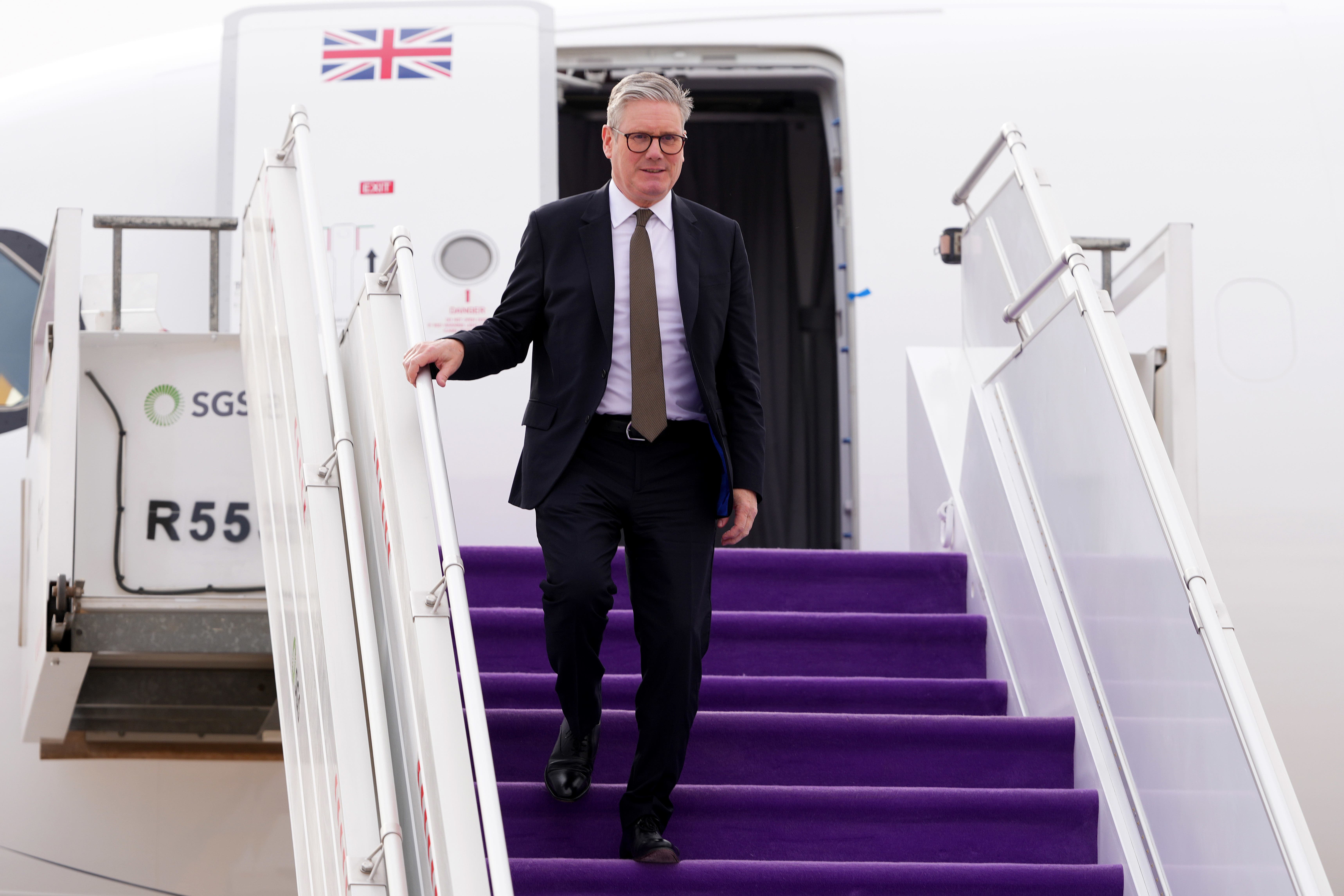PM says ‘no decision pending’ on removal of Syrian rebel group from banned list
A Cabinet minister had earlier suggested a decision on Hayat Tahrir al-Sham could be taken quickly.

The UK is not considering whether to unban the Islamist group that has taken power in Syria, the Prime Minister has said despite a Cabinet minister earlier suggesting the Government could take a swift decision on the matter.
Sir Keir Starmer told broadcasters on a diplomatic visit to Saudi Arabia there was “no decision pending at all” on whether to remove Hayat Tahrir al-Sham (HTS) from the list of proscribed terrorist organisations, adding it was “far too early”.
HTS, which overthrew Bashar Assad’s regime at the weekend, is banned in the UK because of its past association with al Qaida, the terrorist organisation once led by Osama bin Laden
But its leader, Abu Mohammed al-Golani, cut ties with al Qaida years ago and has sought to present his group as a more moderate and inclusive organisation, leading some to suggest the group should no longer be proscribed.
I think it should be a relatively swift decision so it’s something that will have to be considered quite quickly, given the speed of the situation on the ground
Earlier on Monday, Cabinet minister Pat McFadden said a decision on HTS needed to be taken quite quickly.
He told BBC Radio 4’s Today programme: “They’ve been proscribed for quite a long time now.
“The leader of that group has distanced himself away from some of the things that have been said in the past. He is saying some of the right things about the protection of minorities, about respecting people’s rights. So we’ll look at that in the days to come.”
He added: “We don’t know what will happen in Syria right now, whether it’s going to be a better future for the country, or whether it’s going to be more chaos, no one can be certain about that right now.
“But obviously, if the situation stabilises, there’ll be a decision to make about how to deal with whatever new regime is in place there.”
He added: “I think it should be a relatively swift decision so it’s something that will have to be considered quite quickly, given the speed of the situation on the ground.”
But the Prime Minister’s response suggests that no such consideration is currently under way.
Downing Street said on Monday that the Government keeps the regime of proscribed organisations “under regular review”.
The rapid collapse of the Assad regime after 13 years of civil war saw a coalition of rebel groups seize Damascus on Sunday, with the former president fleeing to Russia, one of his main allies.
Mr Assad’s British wife Asma is believed to be with him in Moscow, but the Prime Minister declined to say whether he would consider stripping her of her UK citizenship, adding it was “too early” to say.
He added: “At the moment we are hours, days into a fast-moving situation and that’s why it’s very important for us to continue to talk to our allies, including here in discussions I’ve been having today, to make sure that what happens next is peaceful.
“There’s a lot of moving parts in that, a lot of risks, I absolutely accept, and challenges, but they are going to be best met if we work with our allies towards that peaceful resolution and the rejection, the utter rejection, of terrorism and violence.”
The speed of the fall of the Assad regime caught out many international observers after years of bloody civil war between an array of groups and the Syrian military.
The Russian war in Ukraine and Iran’s involvement in conflicts between its proxies and Israel meant two of Mr Assad’s leading backers were preoccupied with their own difficulties, contributing to weakness in the Syrian regime.
In a sign of that volatility, Israel struck suspected chemical weapons sites and long-range rockets in Syria in order to prevent them from falling into the hands of “extremists” while the US military carried out air strikes against so-called Islamic State targets in the country on Sunday.
Bookmark popover
Removed from bookmarks